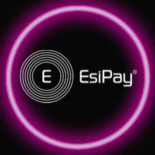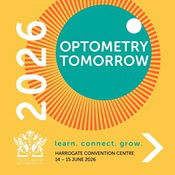audiology
Safety Analysis Shows Rate of Hearing-Related Events Associated with Tepezza
Safety Analysis Shows Rate of Hearing-Related Events Associated with Tepezza
Horizon Therapeutics announced results from a new post-marketing safety analysis of hearing events associated with Tepezza for the treatment of Thyroid Eye Disease (TED). These findings, along with data on the sustainability of response to Tepezza, were presented at the 48th Annual Meeting of the North American Neuro-Ophthalmology Society (NANOS 2022), February 12-17, in Austin, Texas. Tepezza is the first and only medicine approved by the FDA for the treatment of TED—a serious, progressive and potentially vision-threatening rare autoimmune disease.1
Since the FDA approval in 2020, Horizon has conducted post-marketing monitoring to understand the overall safety profile of Tepezza, including hearing-related events. Among the thousands of patients included in this 19-month analysis (Jan. 2020 – Aug. 2021), approximately 10% of all cases reported to the safety database have included a hearing-related event. The most frequently reported hearing event was hypoacusis (reduction in hearing), followed by tinnitus (ringing in the ears). The mean age of the patient, where known, was 59.3 years. No new safety concerns were observed in the post-marketing database.2
This is comparable with what was seen in the pooled OPTIC Phase 3 and OPTIC-X open-label extension trials for Tepezza. Hearing-related adverse events were reported in 9.5% (8/84) of patients treated with Tepezza, which were mild or moderate in severity, versus 0% of patients who received placebo. Adverse events experienced in the clinical trials were manageable, with few discontinuations or therapy interruptions.3,4
“The majority of hearing-related adverse events in the pivotal trials and post-approval have been mild to moderate and reversible, but as with any medicine, it is important to monitor patients,” Kimberly Cockerham, MD, adjunct clinical associate professor, Department of Ophthalmology, Stanford University School of Medicine, and a primary author of the report, said in a company news release. “Notably, we continue to see high patient adherence to Tepezza, with more than 90% of patients completing their full course of treatment in the clinical studies and post-approval. This speaks to the favorable benefit-risk profile of Tepezza for people living with Thyroid Eye Disease.”
A separate analysis presented at NANOS 2022 examined the sustainability of response to Tepezza over the follow-up periods from the phase 2 and OPTIC phase 3 clinical trials and the OPTIC-X open-label extension study. A total of 121 patients were analyzed, with 9 patients receiving additional medications and/or surgery during the follow-up periods. Of those with data available, the majority of patients treated with Tepezza were proptosis, diplopia and European Group on Graves’ Orbitopathy (EUGOGO) composite outcome responders up to 51 weeks after their last infusion.5
“Managing the disabling symptoms of Thyroid Eye Disease can be difficult for patients, both physically and emotionally, and before Tepezza, there was a significant unmet medical need for an effective treatment,” said Jeffrey W. Sherman, MD, FACP, executive vice president, chief medical officer, Horizon. “Ongoing research reinforces the significant impact Tepezza can have on people living with this devastating disease. We are committed to continuing our research to support a positive patient experience with this important medicine.”
























